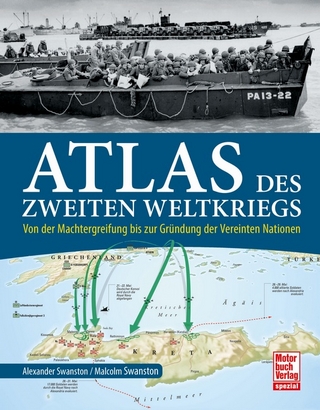
Tanks in the Easter Offensive 1972
Osprey Publishing (Verlag)
978-1-4728-4902-1 (ISBN)
Wearied by years of fighting against Viet Cong guerillas and North Vietnamese regulars, the United States had almost completely withdrawn its forces from Vietnam by early 1972. Determined to halt the expansion and improvement of South Vietnamese forces under the U.S. “Vietnamization” program, North Vietnam launched a major fourteen-division attack in March 1972 against the South that became known as the “Easter Offensive.” Hanoi’s assault was spearheaded by 1,200 tanks and was counteracted on the opposite side by Saigon’s newly equipped armored force using U.S. medium tanks. The result was ferocious fighting between major Cold War-era U.S. and Soviet tanks and mechanized equipment, pitting M-48 medium and M-41 light tanks against their T- 54 and PT-76 rivals in a variety of combat environments ranging from dense jungle to urban terrain. Both sides employed cutting-edge weaponry for the first time, including the U.S. TOW and Soviet 9M14 Malyutk wire-guided anti-tank missiles.
This volume examines the tanks, armored forces and weapons that clashed in this little-known campaign in detail, using after-action reports from the battlefield and other primary sources to analyze the technical and organizational factors that shaped the outcome. Despite the ARVN’s defensive success in October 1972, North Vietnam massively expanded its armor forces over the next two years while U.S. support waned. This imbalance with key strategic misjudgments by the South Vietnamese President led to the stunning defeat of the South in 1975 when T54 tanks crashed through the fence surrounding the Presidential palace and took Saigon on 30 April 1975.
William E. Hiestand was born in 1957, and has worked for over 30 years as a US Department of Defense analyst focusing on military issues, and serving in a wide variety of analytic, leadership, and representational roles. He holds an MA in History from Cornell University, and has a lifelong interest in military history, with a particular focus on 20th-century armored and mechanized operations and Soviet military history. He lives in Virginia near Washington DC.
INTRODUCTION
THE TANKS, DOCTRINE, AND ORGANIZATION
Army of the Republic of Vietnam
North Vietnamese Army
TECHNICAL FACTORS
Medium tanks
Light tanks
Armored personnel carriers and other AFVs
Self-propelled antiaircraft guns (SPAAGs)
THE OFFENSIVE
Quang Tri: the offensive begins
An Loc: attacks on the road to Saigon
Kontum: attack in the Central Highlands
ARVN counterattack in the north
BATTLE ANALYSIS
Strategic, operational, and tactical lessons
TECHNICAL LESSONS
Tank against tank
Airpower
ATGMs
RPGs and LAWs
THE AFTERMATH: VIETNAM, 1973–75
FURTHER READING
INDEX
| Erscheinungsdatum | 18.02.2022 |
|---|---|
| Reihe/Serie | New Vanguard |
| Illustrationen | Irene Cano Rodríguez |
| Zusatzinfo | Illustrated throughout with 40 photos and 8pp of colour illustrations |
| Sprache | englisch |
| Maße | 184 x 248 mm |
| Gewicht | 172 g |
| Themenwelt | Natur / Technik ► Fahrzeuge / Flugzeuge / Schiffe ► Militärfahrzeuge / -flugzeuge / -schiffe |
| Geschichte ► Teilgebiete der Geschichte ► Militärgeschichte | |
| Sozialwissenschaften ► Politik / Verwaltung | |
| ISBN-10 | 1-4728-4902-7 / 1472849027 |
| ISBN-13 | 978-1-4728-4902-1 / 9781472849021 |
| Zustand | Neuware |
| Haben Sie eine Frage zum Produkt? |
aus dem Bereich


